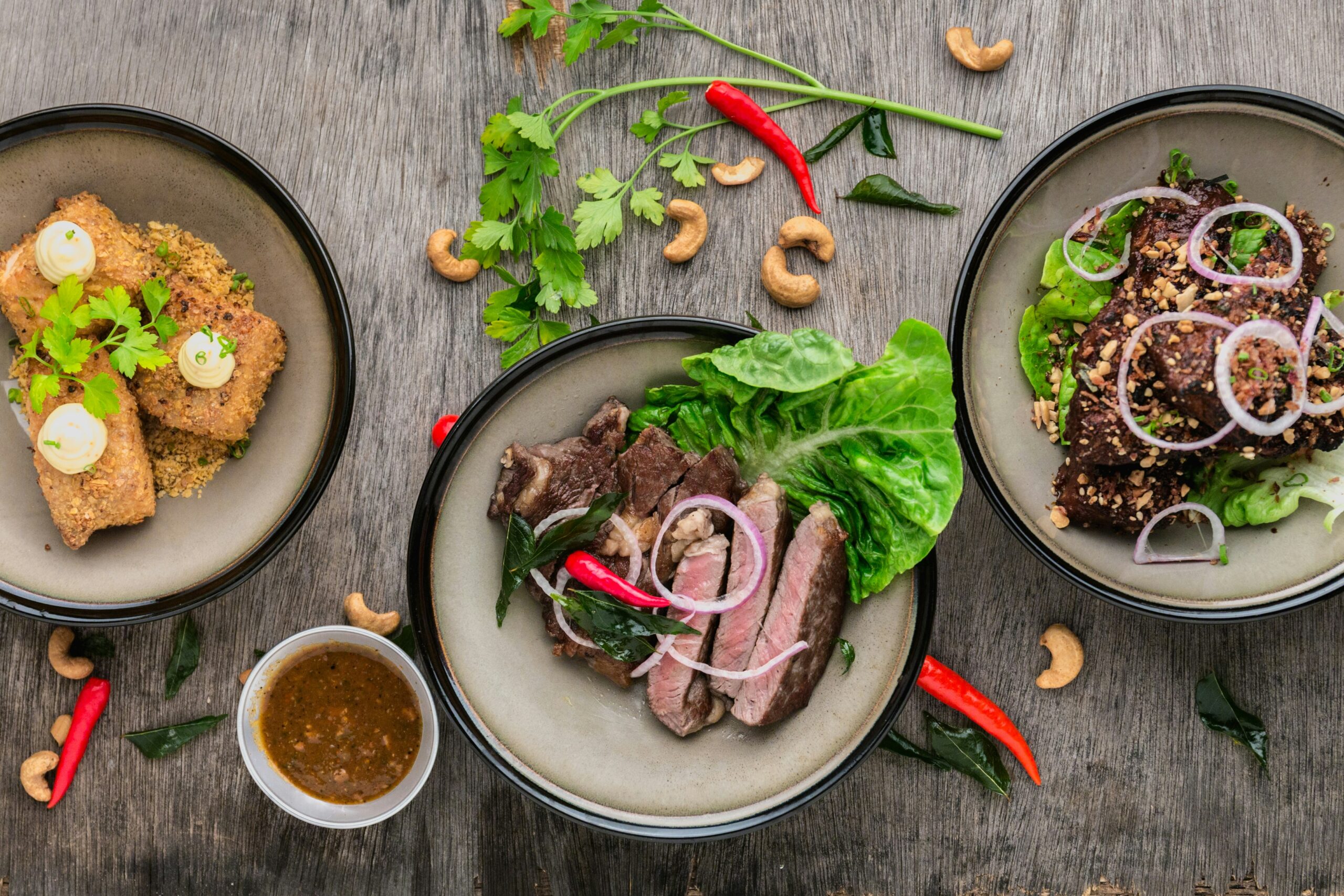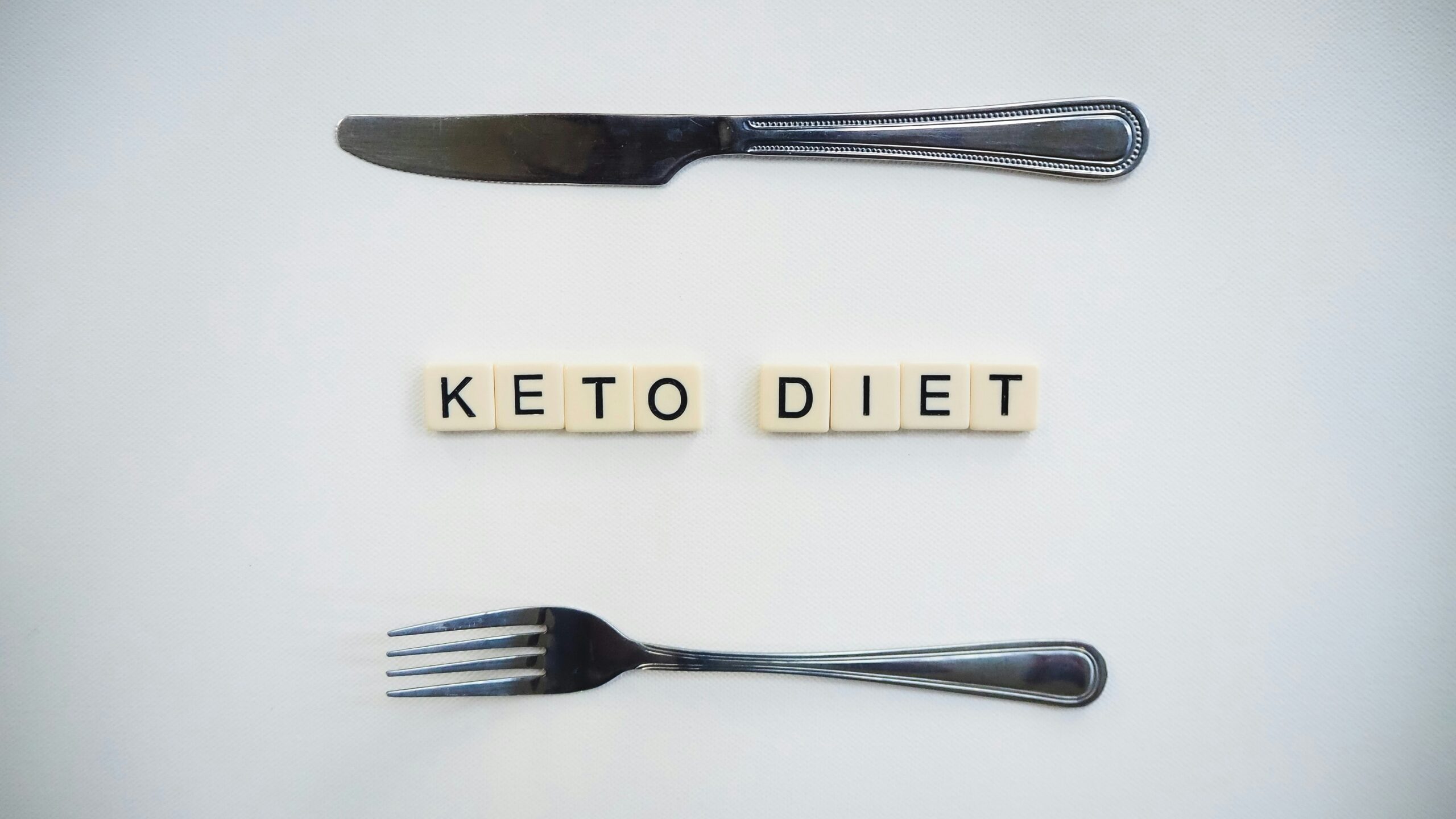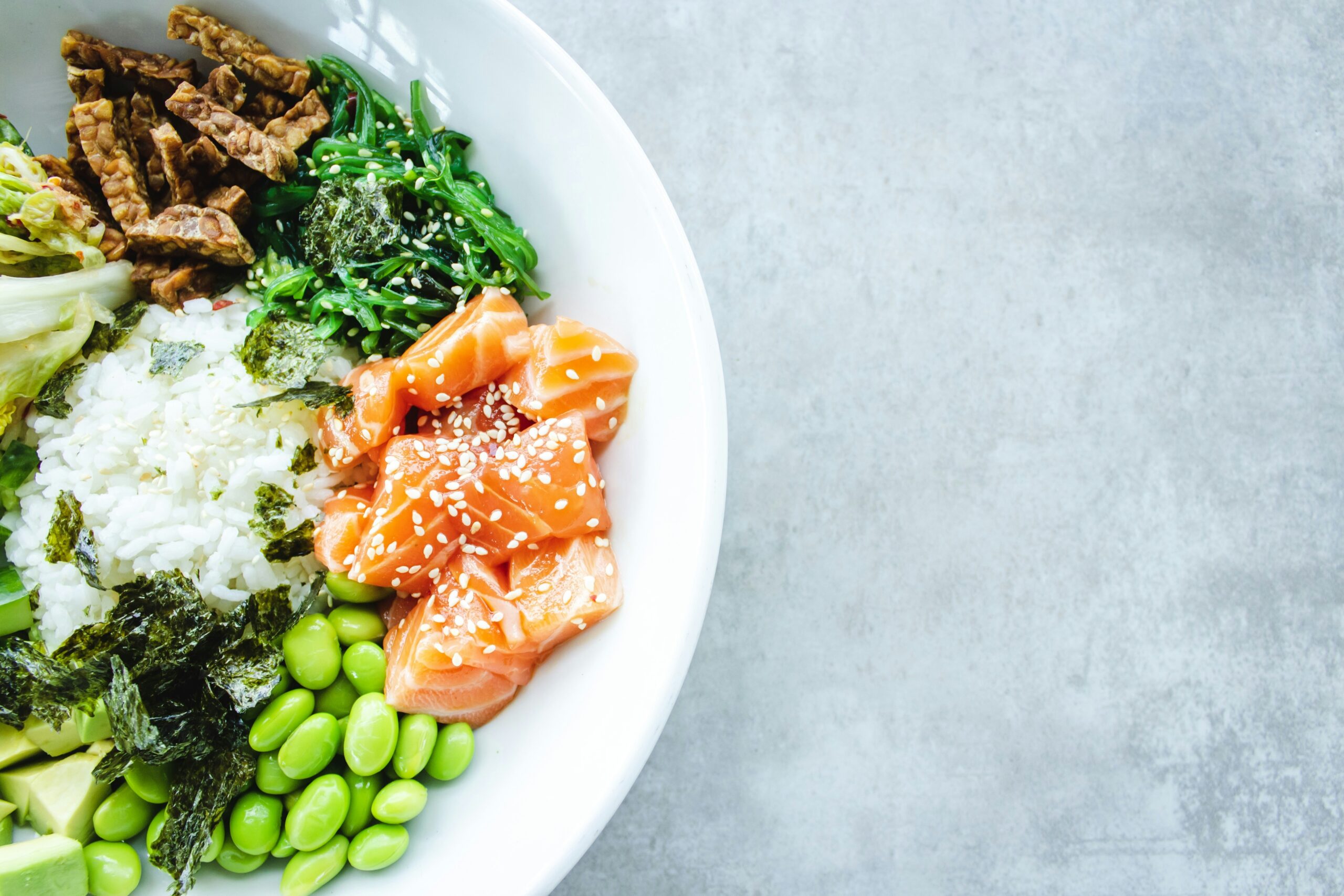Have you ever wondered what exactly “dirty keto” means and what types of foods fall under this category? Well, in this article, you’ll get a clear understanding of dirty keto foods and how they differ from traditional keto. Dirty keto refers to a way of following the ketogenic diet that focuses solely on macronutrient ratios, disregarding the quality and sources of the food consumed. Instead of prioritizing whole and nutrient-dense foods, dirty keto allows for processed and low-quality options as long as they fit within the right macronutrient ratios. So, if you’re curious to know more about the ins and outs of dirty keto foods, keep on reading!

Understanding the Keto Diet
The concept behind a ketogenic diet
The keto diet, short for ketogenic diet, is a popular low-carb, high-fat diet that has gained a lot of attention in recent years. The basic principle behind the keto diet is to drastically reduce carbohydrate intake and replace it with fat. By doing so, the body enters a metabolic state known as ketosis, where it begins to burn fat for fuel instead of carbohydrates. While it may seem counterintuitive to consume more fat in order to lose weight, the ketogenic diet has shown promising results in terms of weight loss, improved mental clarity, and increased energy levels.
How the body enters ketosis
When you consume a high amount of carbohydrates, your body produces insulin to help process the sugar in your bloodstream. However, when you significantly reduce your carb intake, your body no longer has a sufficient amount of carbohydrates to use as fuel. As a result, it turns to an alternative energy source: fat. When your body breaks down fat for energy, it produces ketones, which are molecules that are used as fuel for both your brain and body. This shift from using carbohydrates to ketones for energy is what allows your body to enter a state of ketosis.
Common foods in a standard keto diet
A standard keto diet typically consists of foods that are high in healthy fats, moderate in protein, and low in carbohydrates. Some common foods that are often included in a standard keto diet include fatty meats (such as beef, pork, and lamb), seafood, eggs, full-fat dairy products, nuts and seeds, healthy oils (like olive oil and coconut oil), and low-carb vegetables (such as leafy greens, broccoli, and cauliflower). By focusing on these types of foods, individuals following a keto diet aim to maintain a high fat intake, while keeping their carbohydrate intake low.
Introduction to Dirty Keto
Definition of Dirty Keto
Dirty keto, also known as lazy keto, is a variation of the traditional keto diet that takes a more relaxed approach to food choices. While the goal of both diets is to achieve ketosis, dirty keto allows for the consumption of processed and fast foods that are high in fat and low in carbs, without focusing on the quality of the ingredients. In other words, dirty keto prioritizes macronutrient ratios over the quality of food sources.
Comparison of dirty keto to standard keto
The main difference between dirty keto and standard keto is the emphasis placed on food quality. While a standard keto diet encourages the consumption of whole and unprocessed foods, dirty keto allows for indulgence in processed foods and fast food options, as long as they fit within the macronutrient requirements. This means that someone following a dirty keto diet could potentially eat a fast food burger without the bun, as long as it fits within their daily carbohydrate limit.
Potential reasons for choosing dirty keto
There are several reasons why individuals may choose to follow a dirty keto diet instead of a standard keto diet. Some people find it easier to adhere to a dirty keto diet because it allows for greater flexibility and convenience. The availability of processed and fast foods can make it more manageable to stick to a specific macronutrient ratio, especially for those who have a busy lifestyle or limited access to fresh and whole foods. Additionally, dirty keto may be more financially accessible for individuals on a tight budget, as processed and fast foods tend to be more affordable than organic and whole food options.
Examples of Dirty Keto Foods
High-fat, low-carb processed foods
Dirty keto allows for the consumption of high-fat, low-carb processed foods. These can include items such as bacon, sausage, hot dogs, deli meats, and packaged cheese. While these foods may fit within the macro requirements of a dirty keto diet, they often contain additives, preservatives, and artificial ingredients that are not commonly found in whole, unprocessed foods. It’s important to note that while these processed foods can be included on a dirty keto diet, they should not be the sole focus of one’s diet, as they lack the nutrient density of whole foods.
Fast food selections that fit dirty keto criteria
One of the appeals of dirty keto is the ability to include fast food options in your diet. Fast food chains often have menu items that can be modified to fit a dirty keto diet. For example, you can order a bunless burger or a salad with grilled chicken and high-fat dressing. However, it’s important to be mindful of the quality of the ingredients used in these food items. While they may fit within the macronutrient ratios of dirty keto, they may still contain unhealthy fats, excessive sodium, and artificial additives.
Snacks and convenience items popular in dirty keto
When following a dirty keto diet, many people turn to snacks and convenience items that align with the macronutrient ratios. Snacks such as pork rinds, beef jerky, and packaged nuts can be suitable for a dirty keto diet, as they are low in carbs and high in fat. Additionally, there are various pre-packaged keto-friendly products available on the market, such as protein bars, shakes, and cookies. While these snacks may help individuals stay within their macro goals, it’s important to read ingredient labels and choose options that are made from quality ingredients.
Concerns with Dirty Keto Foods
Nutrient deficiencies
One of the main concerns with a dirty keto diet is the potential for nutrient deficiencies. While dirty keto allows for the consumption of high-fat, low-carb foods, it often neglects the intake of essential vitamins, minerals, and fiber that are commonly found in whole and unprocessed foods. By relying heavily on processed and fast foods, individuals may be missing out on important nutrients, which could have long-term health implications.
Potential for unhealthy fat intake
Dirty keto focuses on macronutrient ratios rather than the quality of fats consumed. While fats are an essential part of a keto diet, it’s important to choose healthy fats, such as those found in avocados, nuts, and olive oil. However, dirty keto may lead individuals to consume unhealthy fats, such as those found in deep-fried foods, processed meats, and other low-quality sources. This can potentially contribute to increased inflammation, heart disease, and other adverse health effects.
Consumption of processed foods and additives
Another concern with dirty keto is the high consumption of processed foods and additives. Many processed foods contain artificial ingredients, preservatives, colorings, and flavorings that can have negative effects on overall health. Additionally, these foods are often high in sodium, which can lead to increased blood pressure and other cardiovascular issues. It’s important to remember that while dirty keto allows for flexibility in food choices, prioritizing whole and unprocessed foods is still crucial for overall health.

Possible Physical Effects of consuming Dirty Keto Foods
Potential impacts on energy levels
While dirty keto may initially provide a boost in energy levels due to the high intake of fats and elimination of carbohydrates, the long-term effects on energy levels can vary. Some individuals may experience sustained energy throughout the day, while others may experience fluctuations in energy. This can be attributed to the lack of nutrient-dense foods in a dirty keto diet, as well as the potential for consuming unhealthy fats and additives that can negatively impact overall energy levels.
Possible effects on weight loss
Dirty keto can contribute to weight loss initially due to the reduction in overall calorie intake and the metabolic effects of ketosis. However, maintaining weight loss on a dirty keto diet may be more challenging in the long term. The lack of nutrient-dense foods and the potential for consuming excessive unhealthy fats can negatively impact overall health and weight management. It’s essential to consider the quality of food choices in addition to macronutrient ratios when aiming for sustainable weight loss.
Risks for specific health conditions
Certain health conditions may be affected by a dirty keto diet. For example, individuals with diabetes may need to closely monitor their blood sugar levels, as consuming processed and high-fat foods can lead to fluctuations in blood glucose. Additionally, individuals with certain heart conditions or liver diseases may need to be cautious with the excessive intake of unhealthy fats and additives associated with a dirty keto diet. It’s important to consult with a healthcare professional before starting any new diet, especially if you have underlying health conditions.
Dirty Keto and Weight Loss
How dirty keto may contribute to weight loss
Dirty keto may contribute to weight loss initially due to the reduction in carb intake and the subsequent process of ketosis. When your body gets into a state of ketosis, it starts utilizing stored fat as fuel, which can lead to weight loss. Additionally, following a dirty keto diet can often lead to a natural decrease in overall calorie intake, as many processed foods and fast foods are typically high in calories but low in nutrients. By reducing your calorie intake and switching to a high-fat, low-carb diet, you can potentially see weight loss results.
Limitations and drawbacks in terms of long-term weight maintenance
While dirty keto may show short-term success in terms of weight loss, it may not be sustainable in the long run for weight maintenance. The lack of nutrient-dense foods and reliance on processed and fast foods can have negative effects on overall health and make it more challenging to maintain weight loss over time. Additionally, the potential nutrient deficiencies and unhealthy fat intake associated with dirty keto can lead to metabolic issues and hinder long-term weight management goals.
Comparison to weight loss on a standard keto diet
In comparison to a standard keto diet, dirty keto may yield similar weight loss results in the short term. Both approaches focus on reducing carbohydrate intake and increasing fat consumption, which can lead to ketosis and subsequent weight loss. However, a standard keto diet emphasizes the importance of whole and unprocessed foods, which provide more nutrients and support overall health. While dirty keto may offer more flexibility and convenience, a standard keto diet is typically considered a more well-rounded and sustainable approach for long-term weight management.

Professional Opinions on Dirty Keto
Views from dietitians and nutritionists
Dietitians and nutritionists generally express concerns about the dirty keto approach. They emphasize the importance of food quality and nutrient density in a healthy diet. While dirty keto may offer short-term weight loss benefits, the long-term health implications and nutrient deficiencies are a cause for concern. Many professionals recommend a standard keto diet or a clean keto approach that prioritizes whole and unprocessed foods for optimal health and well-being.
Medical professional perspectives
Medical professionals approach dirty keto with caution, as they recognize the potential risks and limitations associated with the diet. While it may provide short-term weight loss benefits, the high consumption of processed foods, unhealthy fats, and additives can contribute to adverse health effects in the long run. Medical professionals often recommend a balanced and well-rounded approach to nutrition that focuses on nutrient-dense foods and mindful eating habits for overall health and weight management.
Scientific research associated with dirty keto
There is limited scientific research specifically focused on the dirty keto approach. Most studies surrounding the ketogenic diet analyze the effects of a standard keto diet and its potential benefits for weight loss, epilepsy management, and various health conditions. However, the lack of research on the dirty keto approach highlights the need for more investigation into the potential risks and benefits associated with this variation of the keto diet.
Alternative Keto Approaches
Clean keto as a contrast to dirty keto
Clean keto, also known as strict keto or whole foods keto, is a variation of the keto diet that prioritizes the consumption of whole and unprocessed foods. While adhering to the same macronutrient ratios as dirty keto, clean keto focuses on the quality of the ingredients. This means avoiding processed and fast foods and opting for organic, grass-fed, and free-range sources of protein, healthy fats, and low-carb vegetables. Clean keto aims to maximize nutrient intake while still achieving ketosis.
Flexible keto and its balance between strict and dirty keto
Flexible keto, as the name suggests, takes a more flexible approach to the diet. It allows for occasional indulgence in processed or higher-carb foods, while still maintaining the overall macronutrient ratios of a keto diet. This approach may be suitable for individuals who want to enjoy the benefits of a keto diet but also want to have some flexibility in their food choices. It’s important to note that while flexible keto allows for occasional deviations from the standard keto diet, emphasis should still be placed on nutrient-dense foods and overall health.
Plant-based or vegetarian/vegan keto options
For individuals who follow a plant-based or vegetarian/vegan lifestyle, it is still possible to follow a keto diet with some modifications. Plant-based keto focuses on incorporating plant-based sources of fats and proteins, such as avocados, nuts, seeds, tofu, and tempeh, while minimizing carbohydrate intake from sources like grains and legumes. This variation of keto allows individuals to reap the benefits of ketosis while adhering to their dietary preferences and needs.
Making Smart Choices on a Dirty Keto Diet
Avoiding common pitfalls
When following a dirty keto diet, it’s important to be mindful of common pitfalls that can hinder your progress and overall health. One common pitfall is relying too heavily on processed and fast foods, neglecting quality nutrient-dense options. It’s crucial to ensure that the majority of your diet consists of whole, unprocessed foods and to limit the consumption of high-fat, low-carb processed foods. Additionally, it’s important to be aware of portion sizes and not overindulge in high-fat foods, as excessive calorie intake can impede weight loss goals.
Incorporating more nutrient-dense food options
Although dirty keto allows for indulgence in processed and fast foods, it’s still essential to prioritize nutrient-dense food options for optimal health. By incorporating a variety of low-carb vegetables, lean proteins, and healthy fats into your diet, you can ensure that your body is receiving all the essential nutrients it needs. Incorporating foods like leafy greens, cruciferous vegetables, lean meats, fatty fish, and healthy oils can help provide vitamins, minerals, and antioxidants that are lacking in processed foods.
Strategies for occasional indulgence without harm
While following a dirty keto diet, it’s possible to indulge occasionally without sacrificing your progress or overall health. Moderation is key when incorporating occasional indulgences into your diet. For instance, if you are craving a particular fast food item, consider having it as a treat once in a while, rather than making it a regular part of your diet. Additionally, you can prepare keto-friendly homemade versions of your favorite processed foods to ensure that you are using quality ingredients and minimizing the consumption of unhealthy additives.
Conclusion: Is Dirty Keto Worth It?
Weighing the pros and cons
When considering whether dirty keto is worth it, it’s important to weigh the pros and cons. On one hand, dirty keto offers flexibility, convenience, and the potential for short-term weight loss. It can be more accessible for individuals with limited resources, busy schedules, or specific dietary preferences. On the other hand, dirty keto poses risks in terms of nutrient deficiencies, unhealthy fat intake, and consumption of processed foods and additives. It may not be suitable for long-term weight maintenance and overall health.
Personal factors to consider in choosing a diet approach
When choosing a diet approach, it’s crucial to consider personal factors such as individual health goals, dietary preferences, and lifestyle. Some individuals may find that dirty keto fits their needs and allows for flexibility, while others may prefer a cleaner and more nutrient-dense approach like standard or clean keto. It’s essential to listen to your body, consult with a healthcare professional, and make informed decisions based on what aligns with your specific goals and wellness.
The importance of individual health goals and bodies in decision making
Ultimately, the decision to follow dirty keto or any other diet approach should be based on individual health goals and bodies. What works for one person may not work for another. It’s important to prioritize overall health, sustainability, and well-being above short-term weight loss. Listening to your body, focusing on nutrient-dense foods, and making conscious choices that align with your specific needs and goals can help you find the diet approach that works best for you in the long term. Always consult with a healthcare professional before making any significant changes to your diet.

